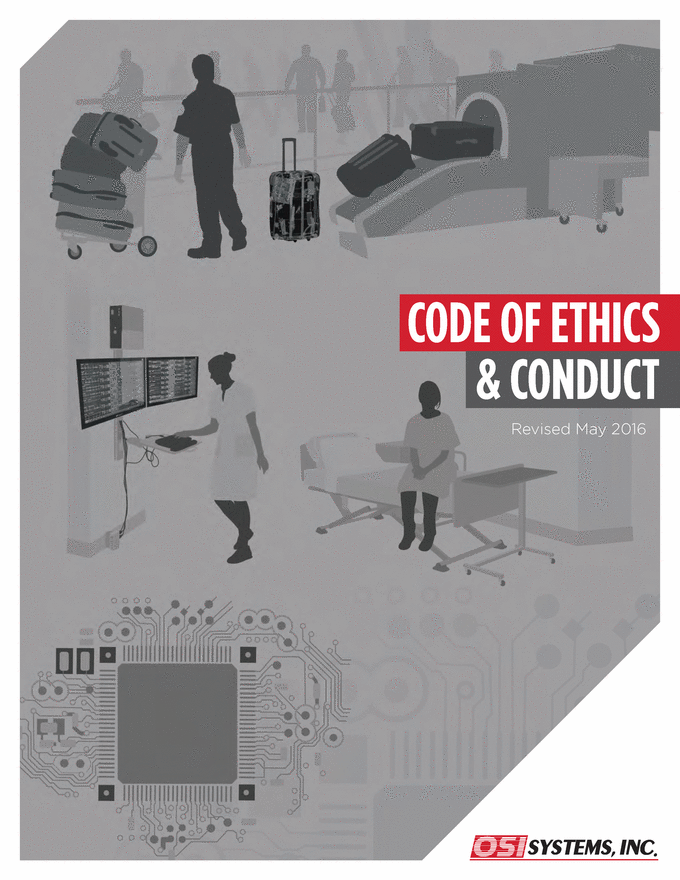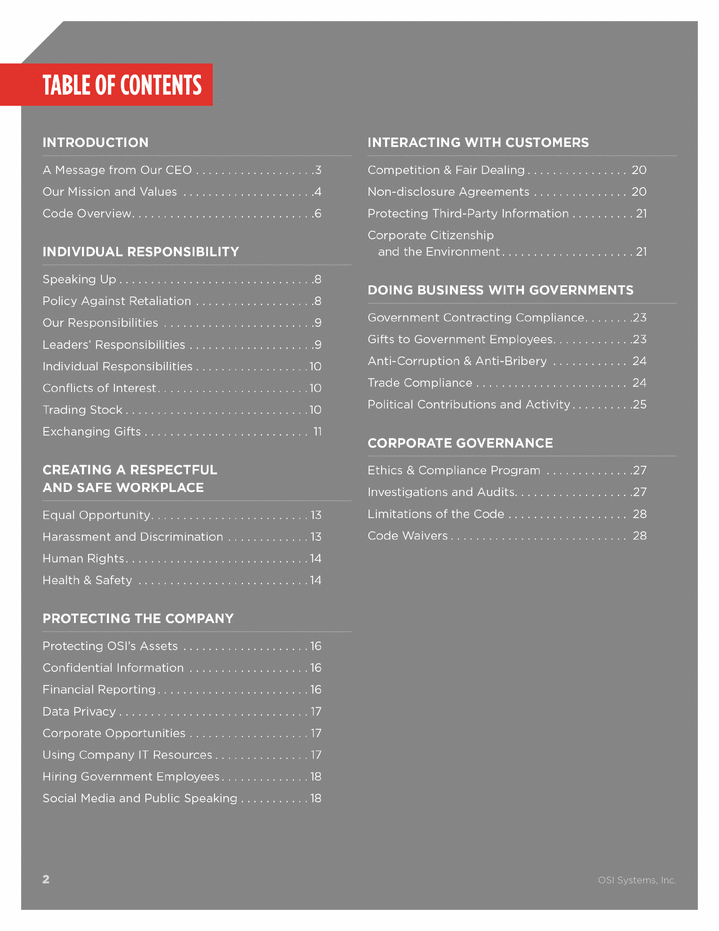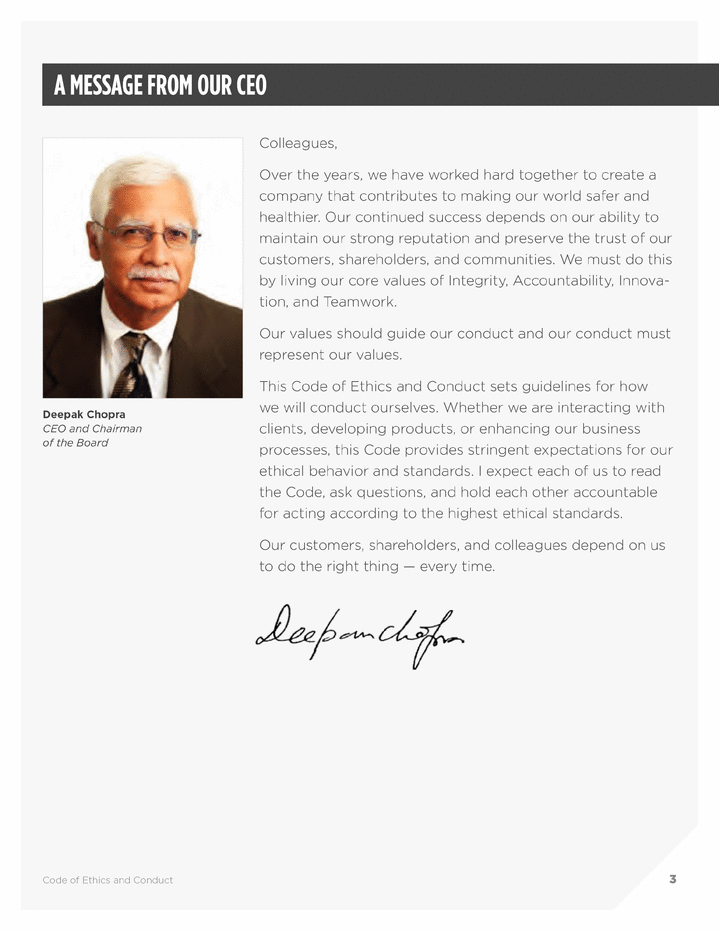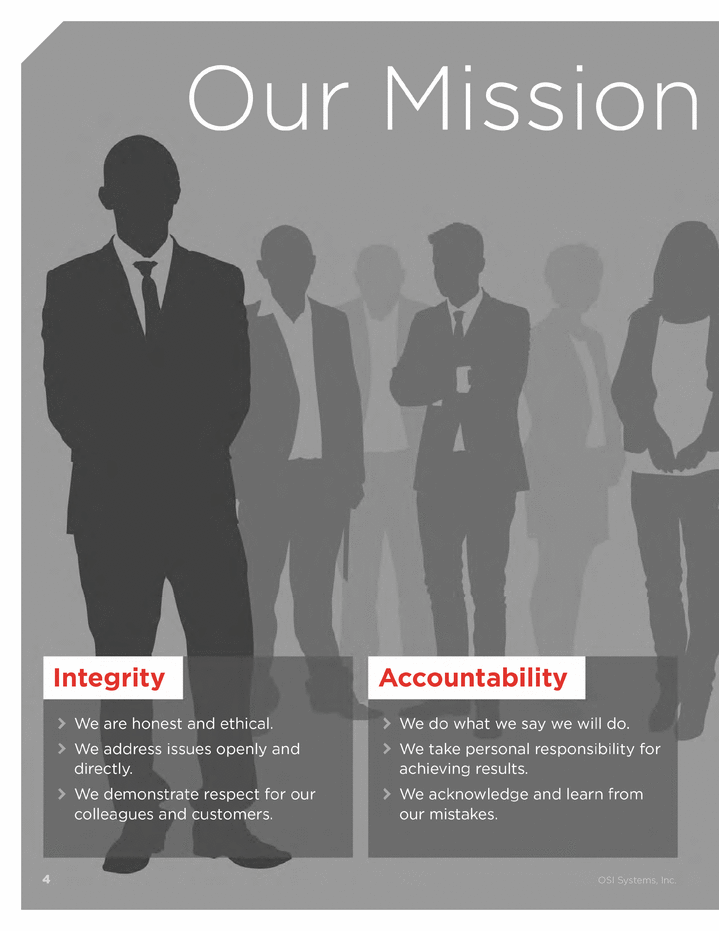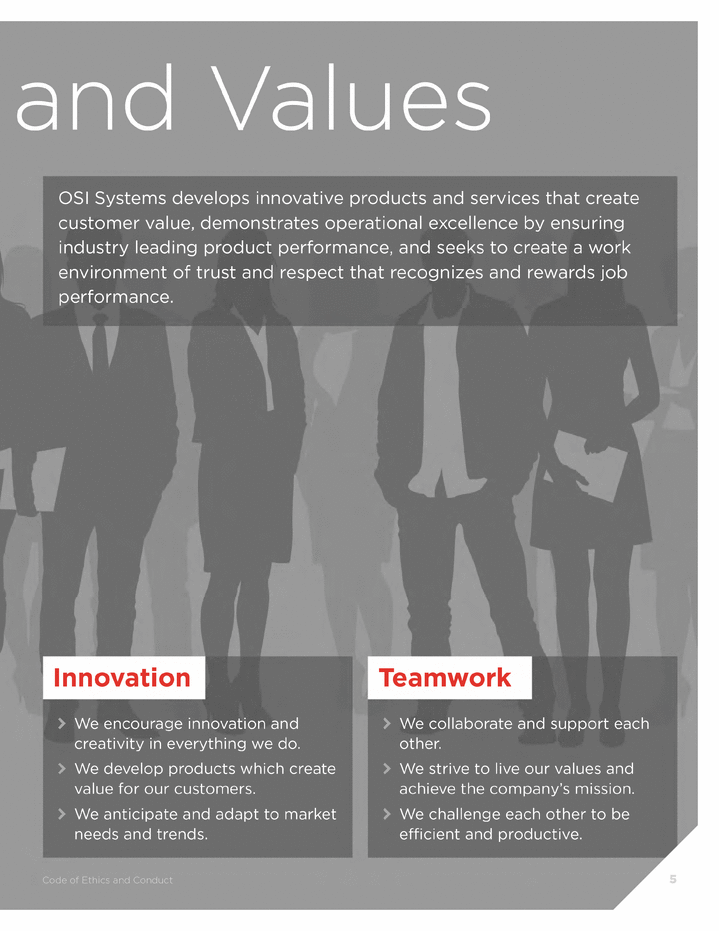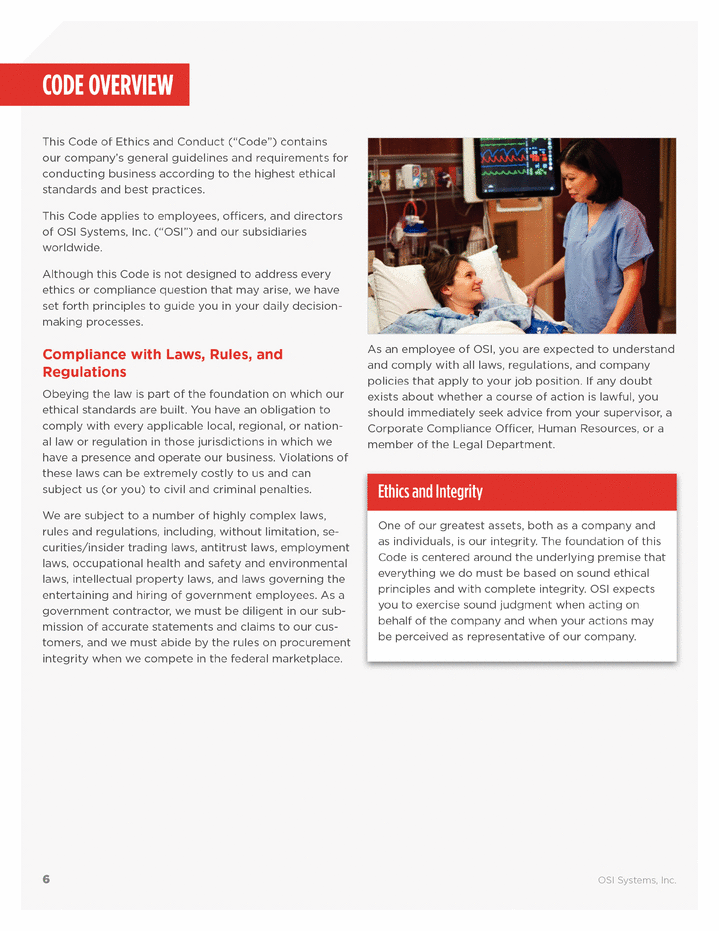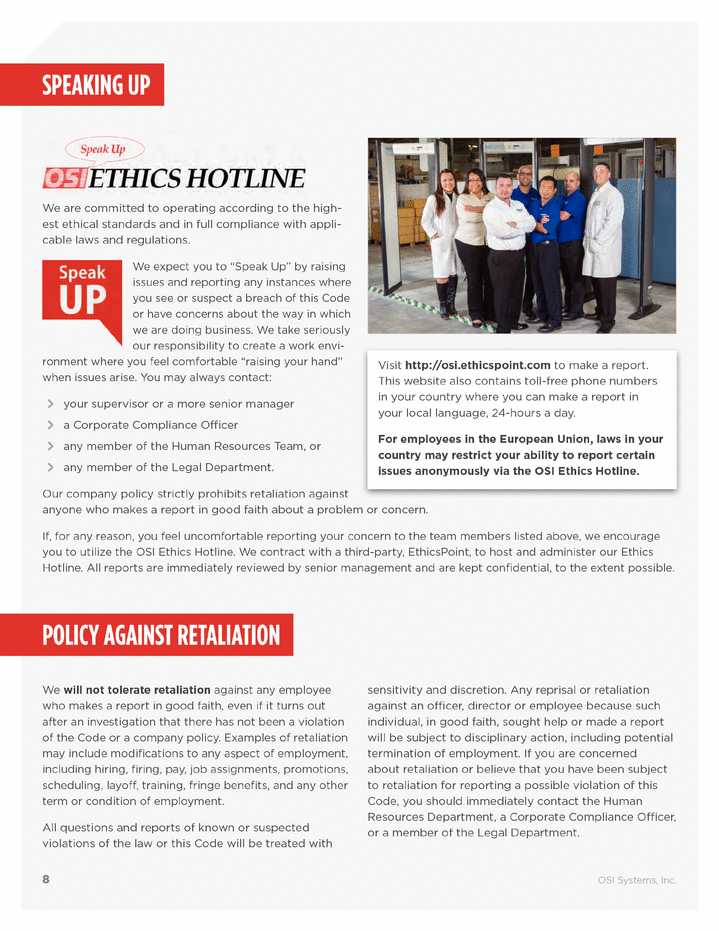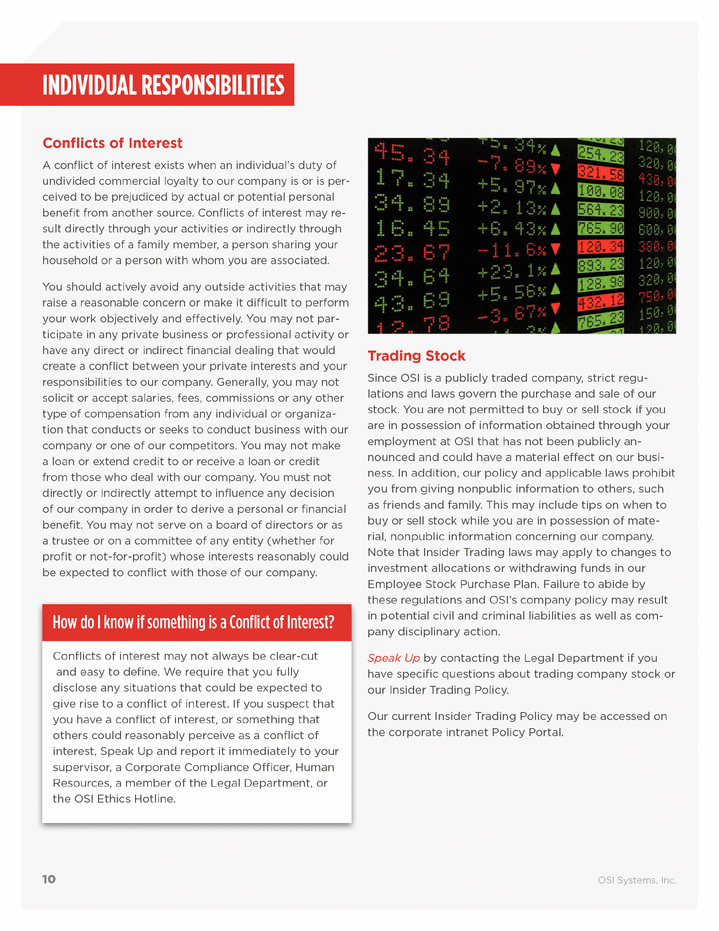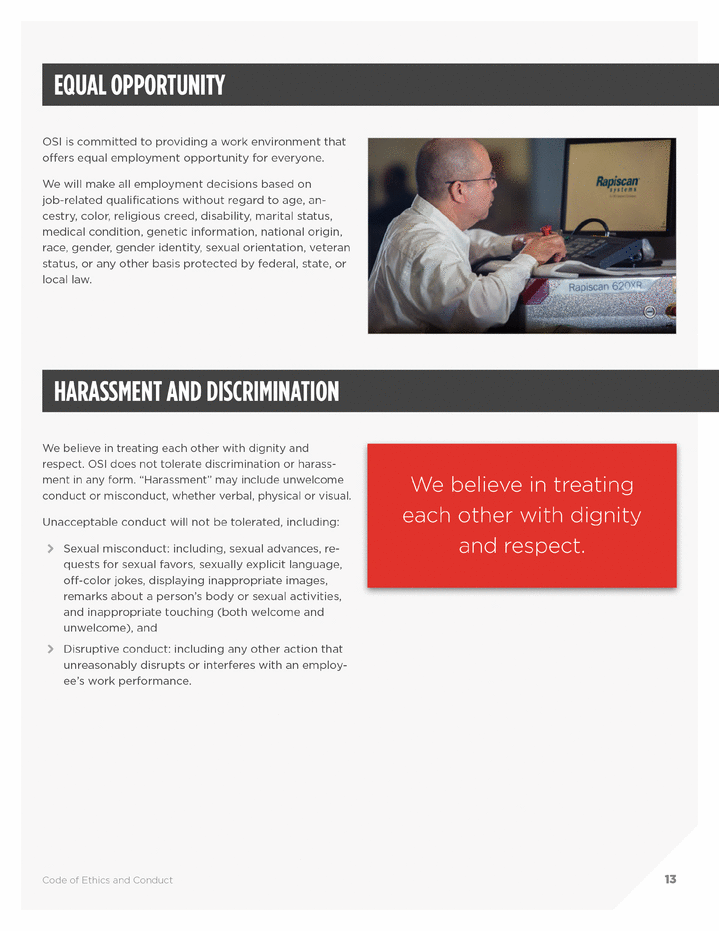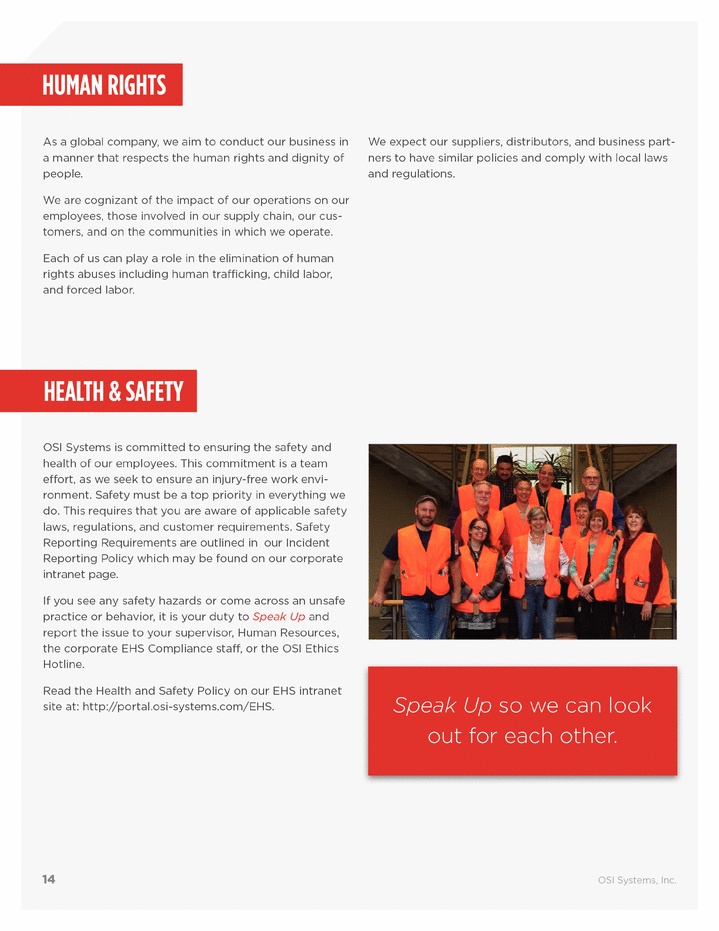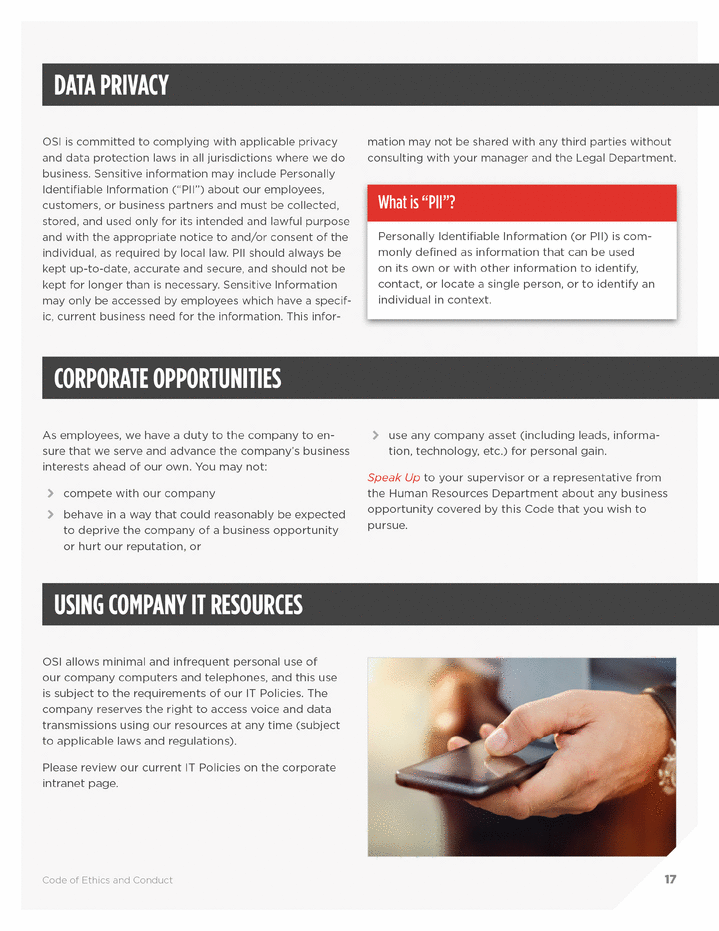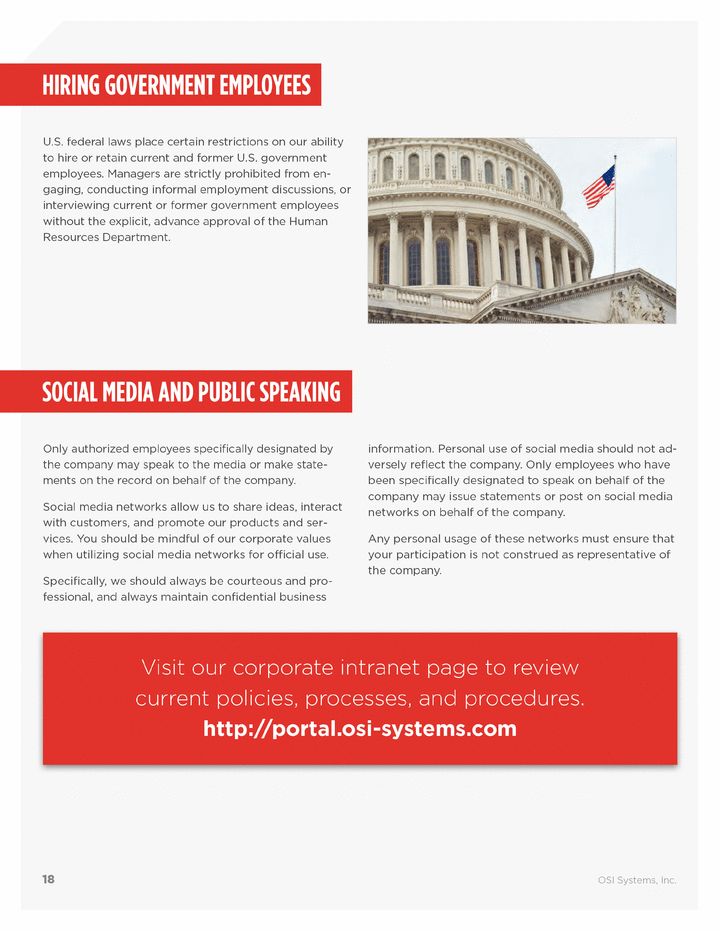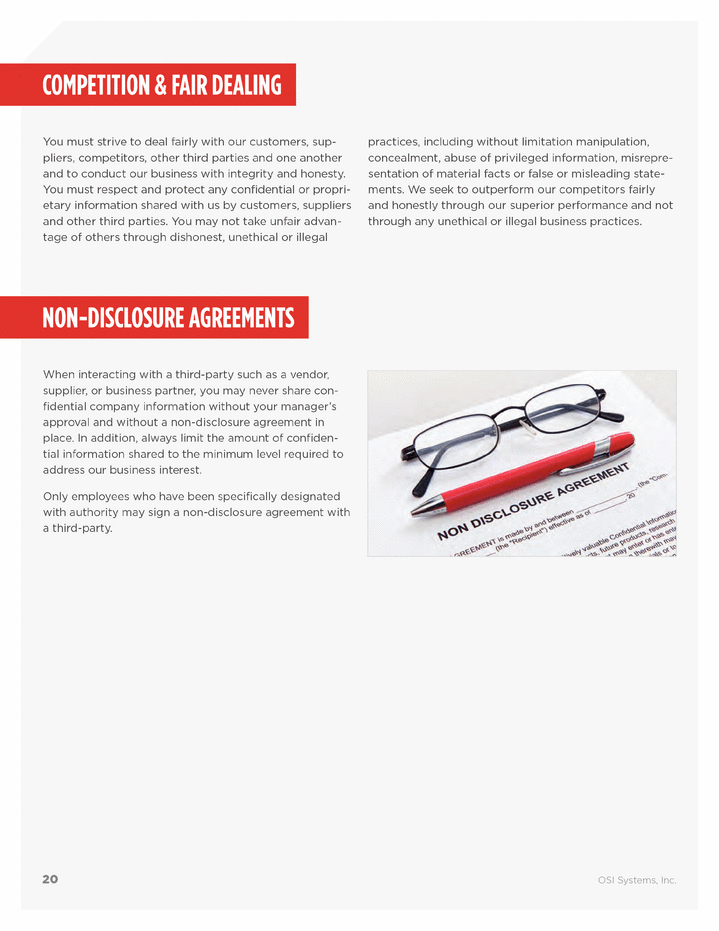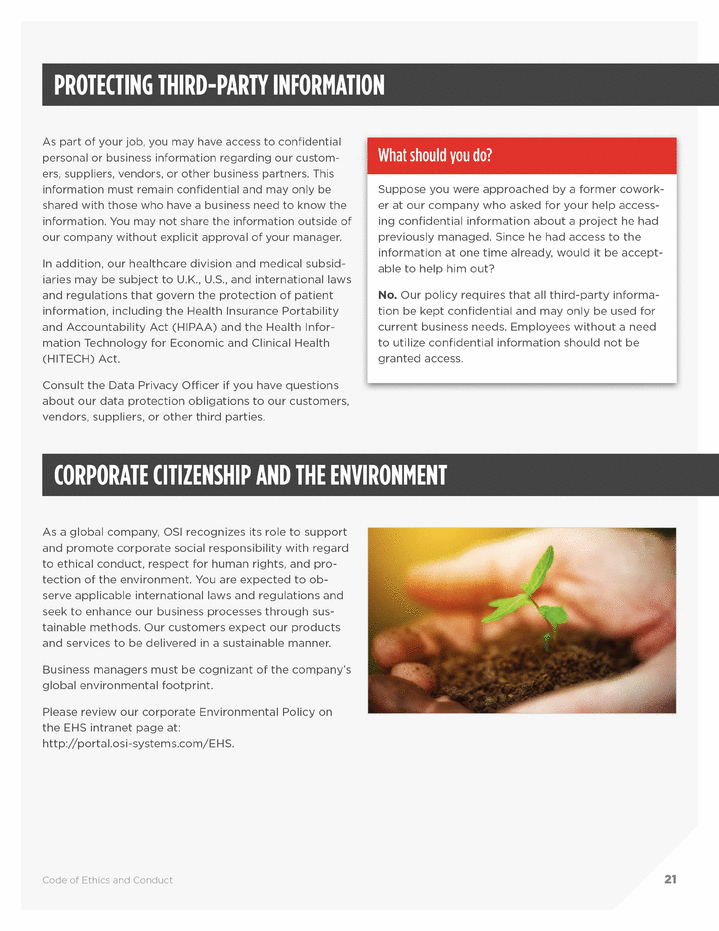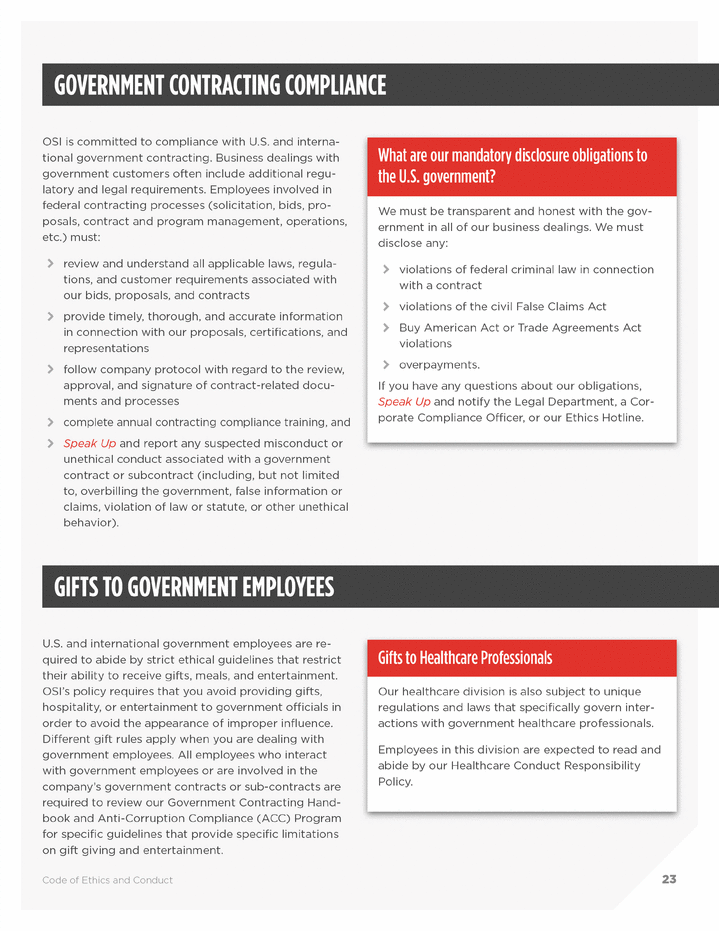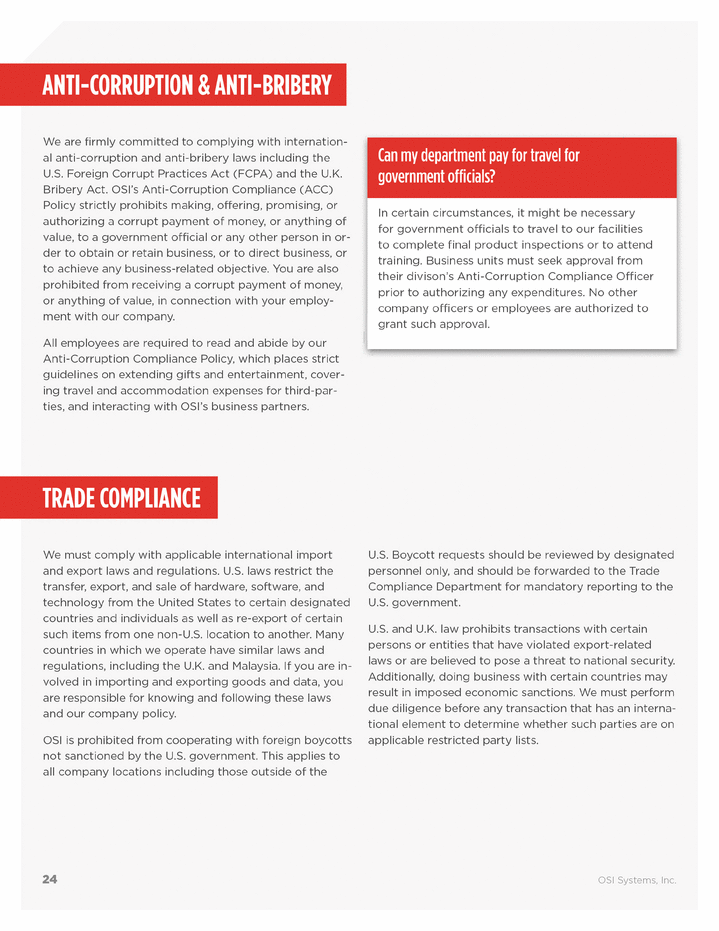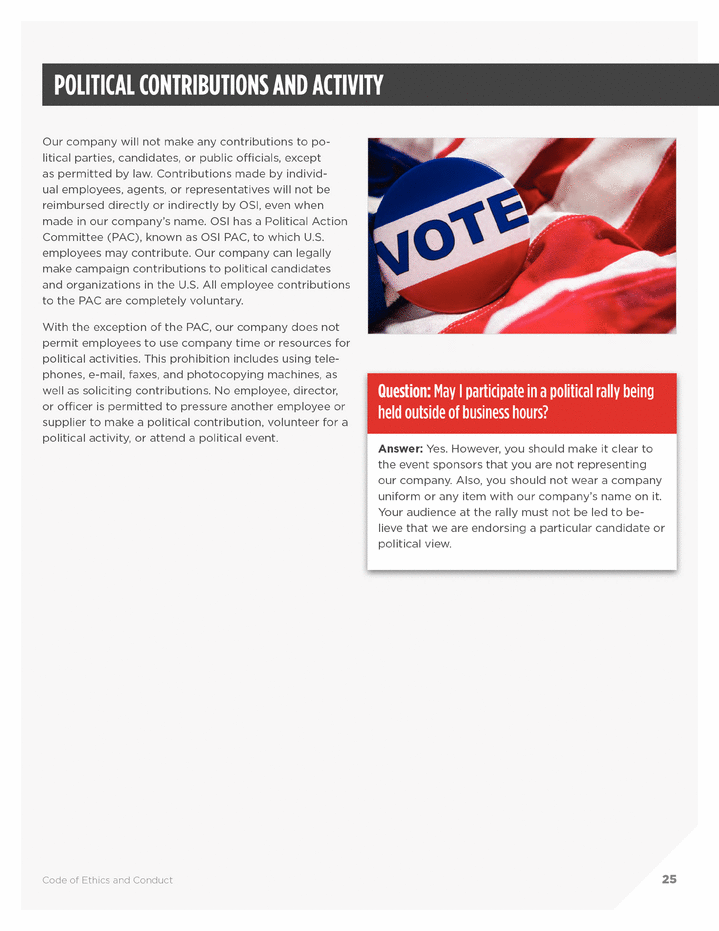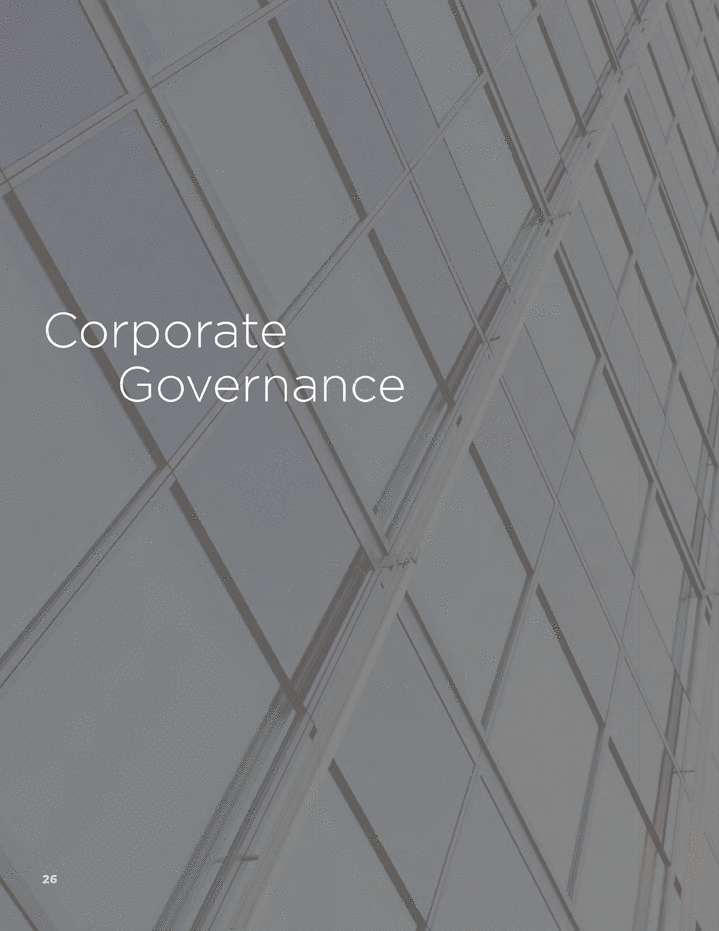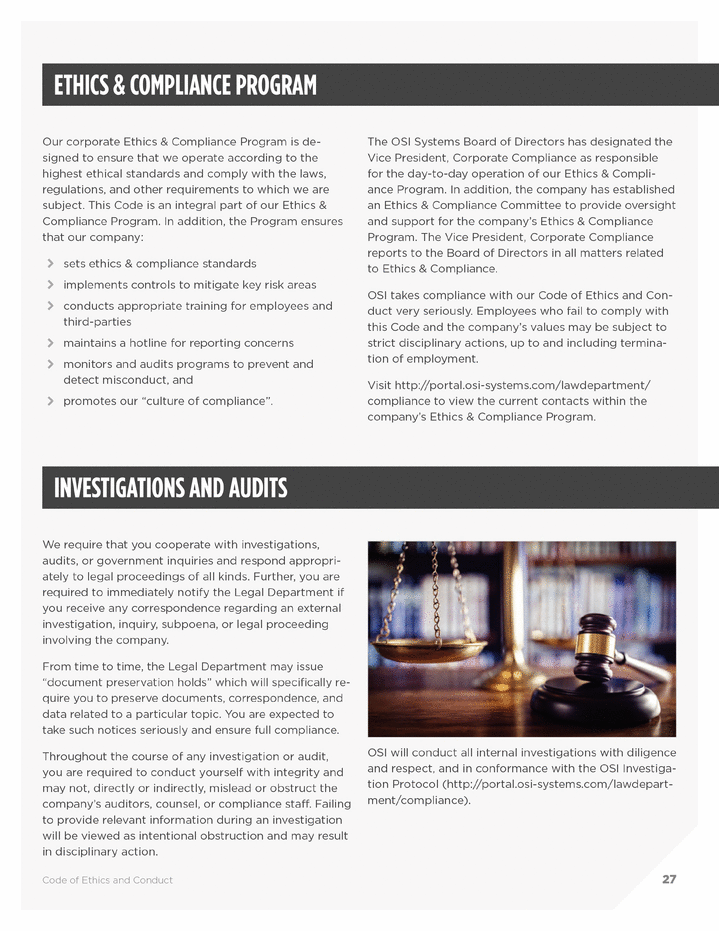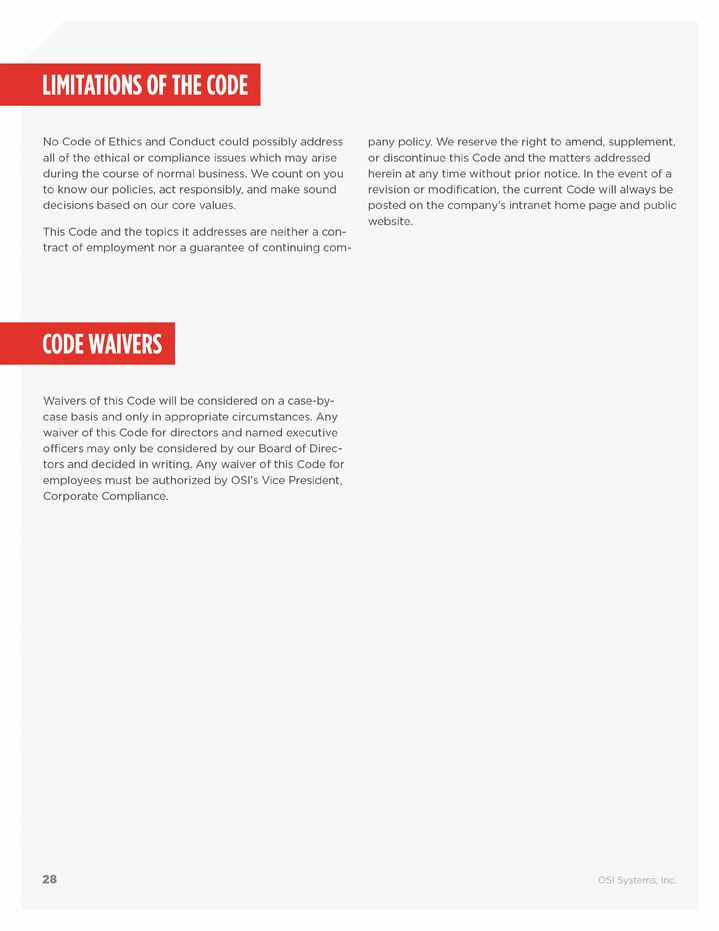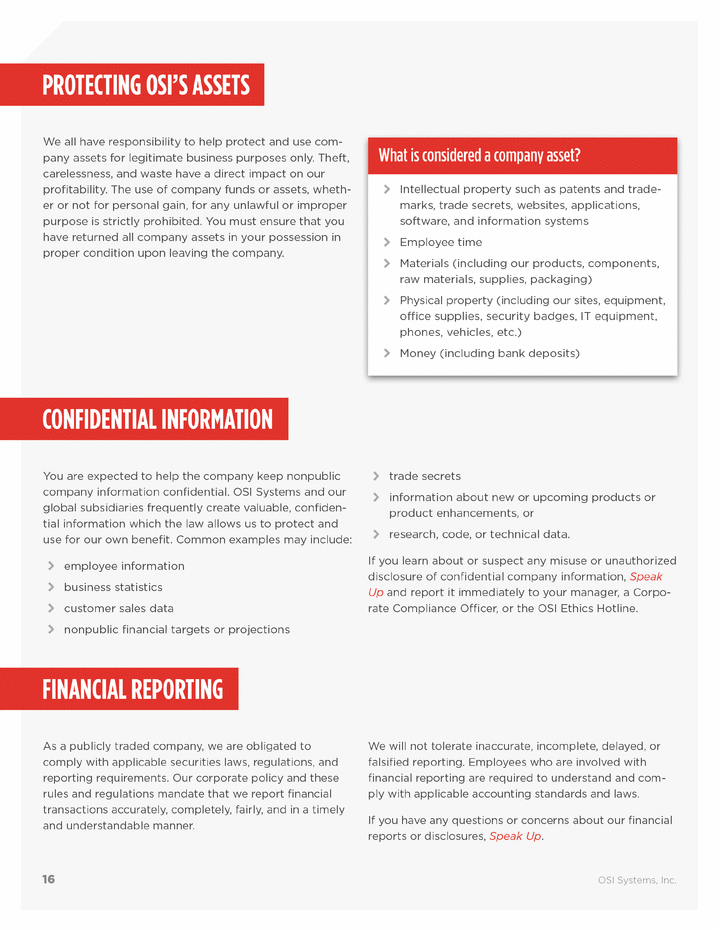
| 16 OSI Systems, Inc. We all have responsibility to help protect and use company assets for legitimate business purposes only . Theft, carelessness, and waste have a direct impact on our profitability . The use of company funds or assets, whether or not for personal gain, for any unlawful or improper purpose is strictly prohibited . You must ensure that you have returned all company assets in your possession in proper condition upon leaving the company . You are expected to help the company keep nonpublic company information confidential . OSI Systems and our global subsidiaries frequently create valuable, confidential information which the law allows us to protect and use for our own benefit . Common examples may include: > employee information > business statistics > customer sales data > nonpublic financial targets or projections > trade secrets > information about new or upcoming products or product enhancements, or > research, code, or technical data . If you learn about or suspect any misuse or unauthorized disclosure of confidential company information, Speak Up and report it immediately to your manager, a Corporate Compliance Officer, or the OSI Ethics Hotline . As a publicly traded company, we are obligated to comply with applicable securities laws, regulations, and reporting requirements . Our corporate policy and these rules and regulations mandate that we report financial transactions accurately, completely, fairly, and in a timely and understandable manner . We will not tolerate inaccurate, incomplete, delayed, or falsified reporting . Employees who are involved with financial reporting are required to understand and comply with applicable accounting standards and laws . If you have any questions or concerns about our financial reports or disclosures, Speak Up . PROTECTING OSI’S ASSETS CONFIDENTIAL INFORMATION FINANCIAL REPORTING > Intellectual property such as patents and trademarks, trade secrets, websites, applications, software, and information systems > Employee time > Materials (including our products, components, raw materials, supplies, packaging) > Physical property (including our sites, equipment, office supplies, security badges, IT equipment, phones, vehicles, etc .) > Money (including bank deposits) What is considered a company asset? |
